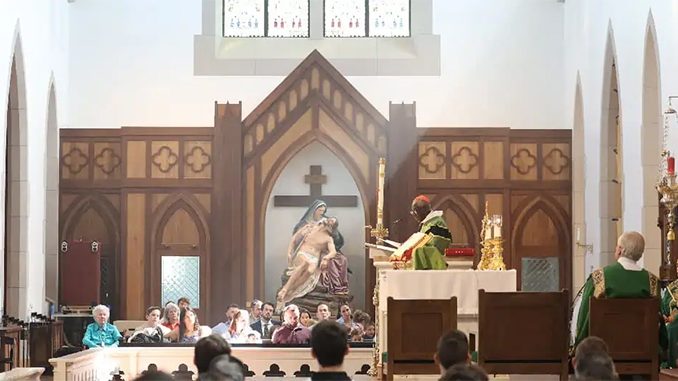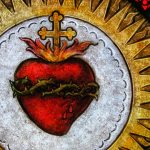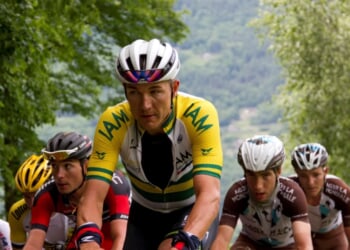
The Graduate School of Theology at Christendom College recently announced the launch of the Institute for Liturgical Formation, which will begin offering summer courses on the liturgy this summer. Co-founded by Christopher Carstens and Dr. Robert J. Matava, the Institute will be of tremendous benefit to clergy and laypeople, those who work at parishes and those who do not. It is for anyone interested in the liturgical life of the Church and wishes to understand the liturgy in practical and theological ways.
Christopher Carstens is the co-founder of the Institute and convener of the summer sessions. He is also the Director of the Office for Sacred Worship in the Diocese of La Crosse, Wisconsin, and editor of Adoremus Bulletin. He serves as a consultant to the USCCB’s Committee on Divine Worship and co-hosts the “Becoming God” podcast.
Dr. Robert J. Matava is Associate Professor and Dean of the Graduate School at Christendom College. He describes his work as being at the intersection of philosophical theology, Christian doctrine, and moral theory. He has held prestigious positions at the University of Oxford, Georgetown University, and other institutions, and sits on the board of directors for the Fellowship of Catholic Scholars.
Recently, Carstens and Matava spoke with Catholic World Report about the new Institute, the role of the liturgy in the lives of Catholics, and the importance of a liturgical formation.
Catholic World Report: How was the Institute formed?
Dr. Robert J. Matava: The Holy Eucharist is the source and summit of Christian life. The Church’s vitality, therefore, depends on the Eucharistic participation of its members. Riding on the heels of the recent National Eucharistic Revival, our aim is to enable the faithful to deepen their liturgical participation. We think that if we foster this deeper participation, we will change the world. Or more precisely, the liturgy will change the faithful, and the faithful will change the world through the Lord dwelling and working in them, for the Eucharist is at the heart of Christ’s cosmic renewal of all creation in himself.
This fits perfectly with Christendom’s institutional motto, drawn from Pope St. Pius X—instaurare omnia in Christo—to renew all things in Christ. At the heart of the Church’s mission is the work of spreading the Gospel and worshipping God. From the time of its founding in 1969, Christendom’s Graduate School has served the first aim by forming catechists and teachers. The second aim is intimately related to this, for authentic liturgical renewal depends on sound liturgical catechesis.
With the support of the College president, Dr. George Harne, Chris Carstens and I founded this institute to form liturgical leaders from the heart of the Church, according to the mind of the Church.
Catholic World Report: Why an institute? Why not just promote liturgical formation through media?
Christopher Carstens: The use of social media to promote the sacred liturgy has been and will continue to be a useful means of formation (in fact, the Second Vatican Council’s decrees on the liturgy and on social communications were the first two Council documents, promulgated on the same day). But an “institute” for liturgical formation provides the space and time for deeper and more thorough formation in the sacred liturgy. Not only will Christendom College’s program feature liturgical and sacramental courses in person and on campus, but it will allow for actual liturgical prayer to take place in a chapel dedicated for that purpose—something that other media cannot offer.
CWR: Why is liturgical formation important?
Matava: Liturgical worship is the central act of any Christian life. The liturgy makes present the saving deeds of Jesus so that the faithful can partake of the redemption he offers and even cooperate with him in accomplishing the salvation of the world. This holds the key to the meaning of any Christian’s life. It is Jesus who gives liturgy, including the sacraments, to the Church. Liturgical acts are primarily his acts: the liturgy is the public worship that Jesus renders to the Father.
But insofar as liturgical acts establish a communion between Jesus and the faithful, his prayer becomes theirs. Christians are to be shaped up around the ritual acts of worship which they receive from Christ, their head, and are to be transformed by them. To celebrate the liturgy so as to be subjectively transformed by it and thereby to love and honor God fittingly requires formation in the ars celebrandi—the “art of celebrating”—as Pope John Paul II, Pope Benedict XVI, and Pope Francis have taught. What is meant by this phrase is a truly liturgical disposition, an internal habit or discipline whereby one assimilates (or perhaps, is assimilated to) and lives the liturgical mystery in its fulness.
The successful renewal of the liturgy that is at the heart of the renewal of evangelization, the renewal of each individual, and indeed, the renewal of the world, depends upon the theological virtues and the internalization of a sound ars celebrandi by each of the faithful.
Carstens: The sacred liturgy, particularly the sacraments, stands at the heart of the Church’s life and mission, for in the liturgy “the work of our redemption is accomplished” (Sacrosanctum Concilium, 2). Certainly, Christ is present and active in all parts of the Church and her work, but the liturgy is a most privileged means to encounter him, adore the Father, and grow in holiness.
If this is the case, then forming participants, liturgical ministers, and those who prepare sacred celebrations remains an important task—as it was before, during, and after the Council. Citing Romano Guardini, Pope Francis writes that “without liturgical formation ‘then ritual and textual reforms won’t help much’” (Desiderio Desideravi, 34). The Church needs ongoing liturgical formation today: following the revision, restoration, and translation of the rites, it is the faithful—clergy and laity—who continue to benefit from liturgical formation.
This focus on the faithful—versus the focus on changing liturgical rites and books—takes us back to the modern liturgical movement of the first half of the 20th century and the efforts of Dom Prosper Guaranger, Dom Lambert Beauduin, and, in the United States, Dom Vigil Michel.
CWR: Is it important for people to be familiar with their liturgical tradition (whether one of the Eastern liturgical families, Roman, etc.)? Is it important to be familiar with other liturgical traditions?
Carstens: Liturgy, by its nature, is traditional. Its essential roots extend through the centuries back to Christ himself. Pope Benedict XVI encouraged a right understanding and right celebration of today’s liturgy by interpreting it in light of what had come before: our ritual “family tree” is rooted in the soil of tradition. Although the Roman Rite is the most predominant in the West, other ritual families have “blossomed” (as the Catechism puts it) in the Church’s history to express more fully the single mystery of salvation in Christ.
Thus, familiarity with these traditions (such as the Alexandrian, Byzantine, or Syrian) helps Catholics see the faith more broadly, more fully.
CWR: Will there be offerings particular to various liturgical traditions (including Eastern), or is the subject matter of the talks, conferences, classes, etc., oriented more broadly to the liturgy in general?
Matava: The primary work of the Institute is to deliver a specialized curriculum comprising twelve courses in sacred liturgy. One of these twelve courses is dedicated to the liturgical traditions of the Catholic East. Also, the foundational nature of several of the other courses lends them a scope that is truly universal and not limited to the Latin church or the Roman Rite in particular. At the same time, the Roman Rite receives special focus because of the practical dimension of the formation we are offering and because most students will belong to the Latin church.
Yet for this very reason, it is extremely important that at least one course be completely dedicated to liturgical traditions of the Catholic East. Students can best understand what is essential to the liturgy by becoming acquainted with its various ritual forms, and we can most appreciate the richness and splendor of the Church’s catholicity when we recognize that the Breath of God fills both lungs of the Church.
Some courses in the curriculum cover thematic topics and provide students with a broad and deep theoretical coherence to their study of the liturgy. Others are focused on more specific aspects of doctrine and practice. There are courses, for example, on the various sacraments, as well as on aesthetical dimensions of liturgical celebration (visual art, architecture, music), on sacramentals and popular piety, on liturgical time, and more. A focus on the Church’s actual teachings and ritual texts, as well as on the significance of the liturgy for Christian spiritual life, unites all of the courses into a cohesive whole.
Moreover, those who are pursuing the Master of Arts degree take theology courses in our core curriculum, which enables them to understand sacred liturgy within the wider horizon of such fundamental doctrines as creation, the Trinity, the Incarnation, salvation, and the Church, to name just a few. Descriptions for all of the courses can be found on the Institute’s site.
CWR: Are there any sort of certificates or degrees that the Institute will grant?
Matava: The Institute will grant the Master of Arts degree in theological studies with a concentration in sacred liturgy. The Institute is housed within Christendom’s Graduate School of Theology. Students who have been through seminary will likely have a number of core exemptions on admission, and a certain number of transfer credits may be applied. Courses for the sacred liturgy concentration will be offered on campus in person during the summertime. Each summer, four courses will be offered over a three-year cycle.
Twelve courses in total constitute the concentration. Each course meets daily for two weeks, and there are two back-to-back sessions each summer spanning the month of July. While liturgy courses must be taken in person in order to provide an immersive experience of common worship, fellowship, and the exchange of ideas, students can complete their core coursework conveniently online in either live or asynchronous formats. We are also building a certificate track for those who want to take an organized course of studies in sacred liturgy, but who do not want to pursue the entire MA degree. We hope to have the certificate track finalized by summer 2026, before the first three-year cycle of summer liturgy courses is complete. Students pursuing the MA who intend to go on for a more advanced graduate degree afterward have the option of adding languages and thesis research to their program of studies at Christendom.
CWR: Is there anything else you would like to add?
Carstens: The Second Vatican Council’s Constitution on the Sacred Liturgy was approved with greater unanimity than any of the Council’s other documents. Yet in the years that followed the Council, a great deal of chaos, confusion, and division emerged. Even today, the sacred liturgy remains a point of contention among many Catholics. While the Institute for Liturgical Formation will not solve every liturgical problem, our hope and prayer is to form clergy and laity to understand, celebrate, and pray the liturgy as the Church desires, a liturgy grown out of tradition, sanctifying men and women in our day, with joyful fidelity to the Church and her books.
Matava: If you are passionate about the liturgy, please apply! If you cannot join, there are three other ways that you can cooperate in our work.
First, recommend the Institute. Perhaps you know a priest, a director of divine worship, a catechist, or a music director who is responsible for liturgical preparation and would benefit from the theological and practical formation that the Institute offers.
Second, and most importantly, please pray for our members and for the success of our efforts.
Third, you can help support our work financially. One of my dreams, for example, is to establish scholarships that can help cover the living expenses of students in residence, particularly priests and religious from abroad, who otherwise lack the resources to attend the Institute.
If you value the news and views Catholic World Report provides, please consider donating to support our efforts. Your contribution will help us continue to make CWR available to all readers worldwide for free, without a subscription. Thank you for your generosity!
Click here for more information on donating to CWR. Click here to sign up for our newsletter.











